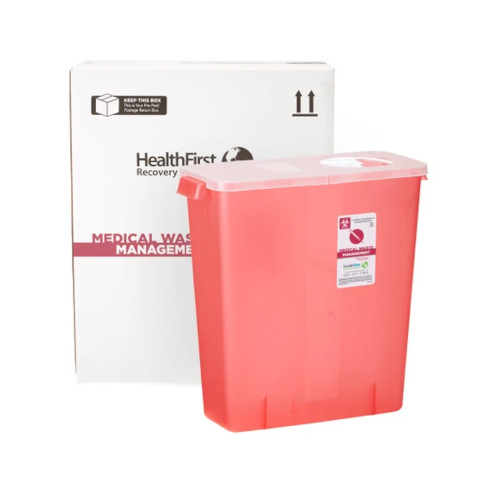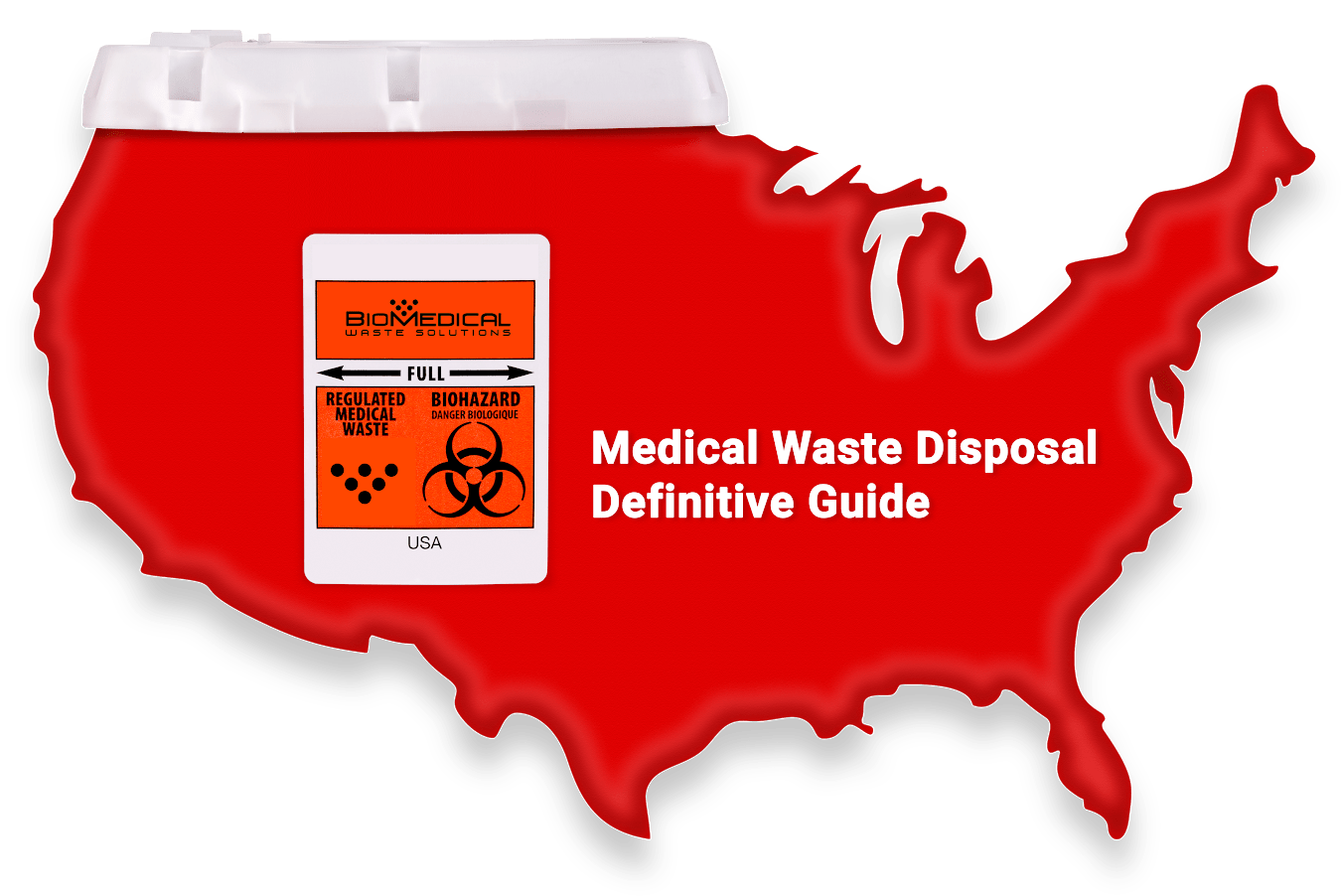Professional Solutions for Health And Wellness: Introducing the Medical Waste Removal Service Benefit
Professional Solutions for Health And Wellness: Introducing the Medical Waste Removal Service Benefit
Blog Article
The Importance of Correct Waste Disposal Practices
The management of waste is an essential element of environmental stewardship that frequently goes unnoticed in our lives. Appropriate waste disposal techniques are not simply a matter of comfort but are important for protecting our ecological communities and public health and wellness. From the consequences of incorrect waste disposal on our setting to the long-lasting ramifications for future generations, the value of taking on lasting waste administration practices can not be overemphasized. By discovering the ecological effect of irresponsible waste disposal, the advantages of recycling campaigns, and the relevance of neighborhood engagement in waste decrease initiatives, a much deeper understanding of why proper garbage disposal methods are critical emerges.
Environmental Impact of Improper Disposal
Improper disposal of waste poses a substantial risk to the environment as a result of its detrimental effects on ecological communities and human health and wellness. When waste is not appropriately taken care of, it can lead to contamination of the air, soil, and water, causing injury to numerous plant and animal types. click here. Chemicals and toxic substances from poorly disposed waste can seep right into the ground, infecting groundwater resources and affecting the wellness of both wildlife and humans
Furthermore, the accumulation of waste in landfills creates greenhouse gases like methane, adding to environment modification and worldwide warming. Incorrect disposal methods additionally lead to littering, which not just degrades the aesthetic worth of the atmosphere but can also hurt wildlife through ingestion or complication.
To reduce these ecological influences, it is critical for people and areas to take on proper waste disposal methods such as recycling, composting, and responsible contaminated materials disposal. By taking these steps, we can help protect ecosystems, maintain natural deposits, and protect human health for future and existing generations.
Benefits of Recycling Programs
Regularly taking part in recycling programs uses many benefits for both the environment and society as a whole. Among the crucial benefits of recycling is the preservation of all-natural sources. By reusing materials such as paper, plastic, metal, and glass, much less raw materials require to be removed from the planet, leading to minimized deforestation, mining, and exploration activities. This preservation of resources not only helps in maintaining environmental equilibrium however additionally adds to sustainable development.
Additionally, reusing plays an important duty in decreasing power usage and greenhouse gas discharges. The manufacturing of items from recycled products usually requires much less power contrasted to making from virgin resources - medical waste removal. Consequently, the carbon footprint connected with the manufacturing procedure is dramatically lowered, helping in the battle versus environment change
Additionally, recycling programs create task possibilities in the reusing industry, promoting financial development and social welfare. By encouraging the recycling and reuse of materials, these programs sustain a circular economy that decreases waste generation and takes full advantage of resource effectiveness, inevitably causing a cleaner, greener future for generations ahead.
Contaminated Materials Monitoring Guidelines
Applying reliable contaminated materials management guidelines is important for reducing environmental and health and wellness dangers related to the incorrect disposal of hazardous materials - click here. Proper handling, therapy, and disposal of contaminated materials are important to avoid contamination of soil, water resources, and air
One trick standard is appropriate labeling of dangerous waste containers to guarantee secure handling and transportation. In addition, facilities should adhere to stringent storage demands to stop leakages, spills, or crashes that could jeopardize human wellness and the setting. Regular training programs for workers on contaminated materials management techniques are also vital to guarantee compliance with regulations and advertise a society of safety and security.
Additionally, contaminated materials must be set apart based on its buildings to prevent chemical responses that might lead to unsafe situations. Applying an extensive waste monitoring system can help check the activity of harmful products from generation to disposal, making sure transparency and accountability. By following these standards vigilantly, companies and markets can contribute to a more secure and cleaner environment for existing and future generations.
Area Participation in Waste Decrease
To successfully address the environmental and health dangers connected with dangerous waste monitoring, involving the neighborhood in waste reduction initiatives is paramount. Area involvement plays a crucial role in advertising lasting waste monitoring methods and fostering a society of environmental duty. By informing citizens regarding proper waste partition, recycling, and composting techniques, communities can significantly reduce basics the amount of waste sent to garbage dumps, consequently decreasing environmental air pollution and preserving natural sources.
Community engagement in waste reduction programs additionally helps in increasing awareness regarding the relevance of waste reduction and encourages individuals to adopt environment-friendly behaviors in their every day lives - medical waste removal service. Collaborative efforts between regional authorities, waste management business, and community members can cause the execution of reliable waste decrease techniques customized to the specific demands of each area or town
Moreover, neighborhood interaction promotes a sense of possession and accountability amongst locals, empowering them to take proactive steps in the direction of minimizing waste generation and advertising a cleaner, much healthier atmosphere for existing and future generations. By interacting in the direction of typical waste reduction goals, areas can make a considerable influence on reducing the unfavorable impacts of inappropriate garbage disposal techniques.

Future of Sustainable Waste Practices
Traditional waste disposal techniques, such as landfilling and incineration, are no much longer lasting in the long term due to their significant ecological impacts. Relocating ahead, the future of sustainable waste techniques lies in embracing a round economic climate strategy, where resources are reused, recycled, or repurposed to lessen waste generation.
Technical developments play a crucial role fit the future of lasting waste methods. Advanced waste sorting and reusing modern technologies can aid improve the efficiency of waste administration procedures, permitting the recuperation of useful resources from waste streams. In addition, the fostering of eco-friendly products and composting methods can help in reducing the amount of natural waste winding up in landfills, consequently minimizing greenhouse gas exhausts.
Moreover, promoting consumer understanding and education on appropriate waste segregation and disposal methods is vital for driving behavior adjustment towards sustainability. By fostering a society of waste reuse, decrease, and recycling, areas can collectively add to a cleaner and much healthier environment for future generations.

Conclusion
To conclude, proper garbage disposal practices are crucial for reducing environmental influence and advertising sustainability. By carrying out reusing programs, taking care of contaminated materials appropriately, and motivating neighborhood participation in waste decrease efforts, we can function towards a cleaner and much healthier setting. It is necessary for people, organizations, and governments to focus on lasting waste methods for the future health of our world.

From the repercussions of improper waste disposal on our setting to the long-term implications for future generations, the value of adopting lasting waste administration practices can not be overstated. By exploring the ecological effect of irresponsible waste disposal, the benefits of reusing efforts, and the value of community involvement in waste reduction efforts, a deeper understanding of why proper waste disposal techniques are crucial emerges.
By enlightening locals regarding proper waste segregation, reusing, and composting methods, communities can substantially lower the quantity of waste sent to landfills, consequently lessening environmental air pollution and preserving all-natural resources. (click here)
Relocating forward, the future of lasting waste techniques lies in welcoming a circular economic climate strategy, where sources are recycled, recycled, or repurposed to reduce waste generation.
Advanced waste sorting and reusing technologies can aid improve the performance of waste administration procedures, enabling for the recuperation of valuable sources from waste streams.
Report this page